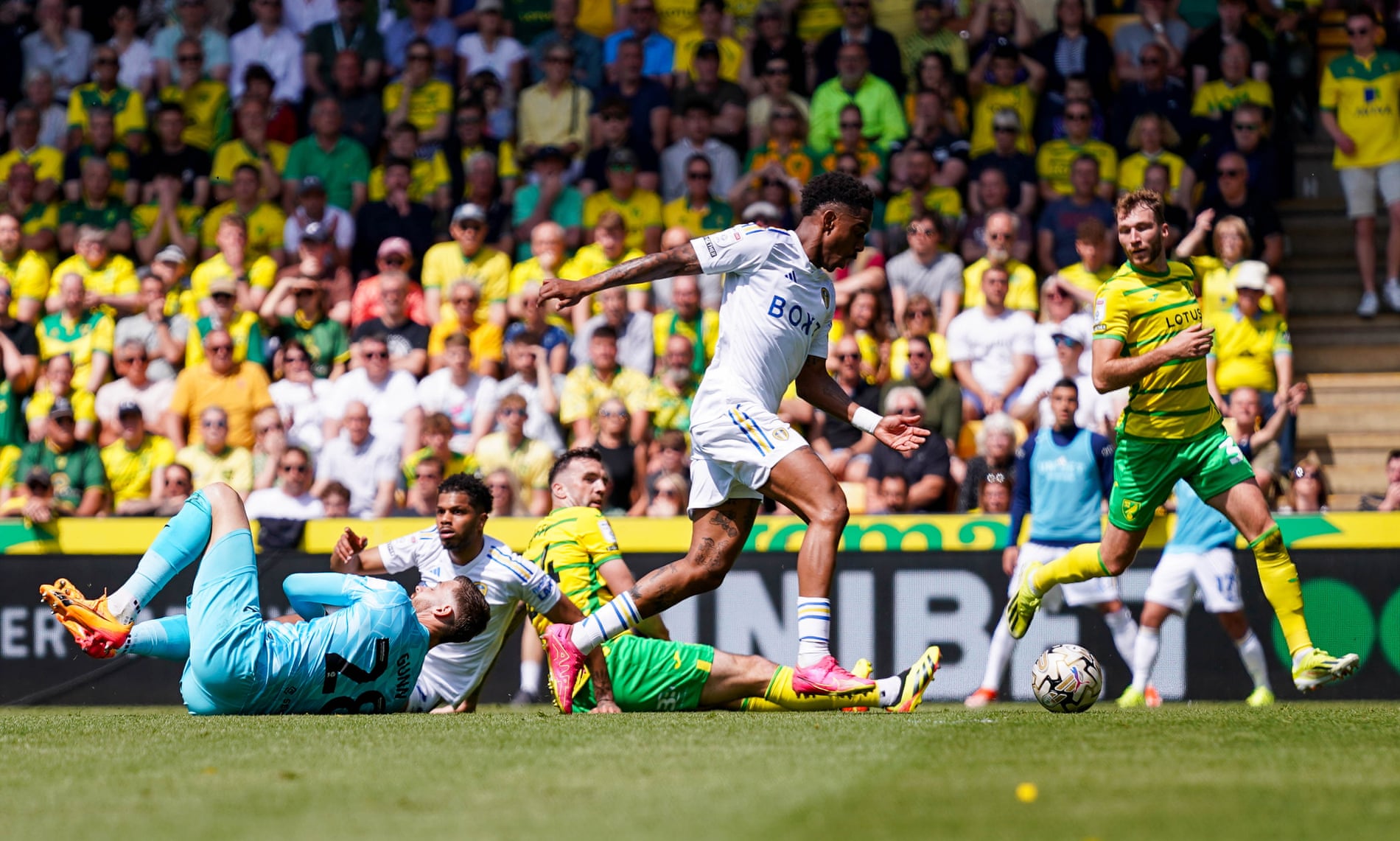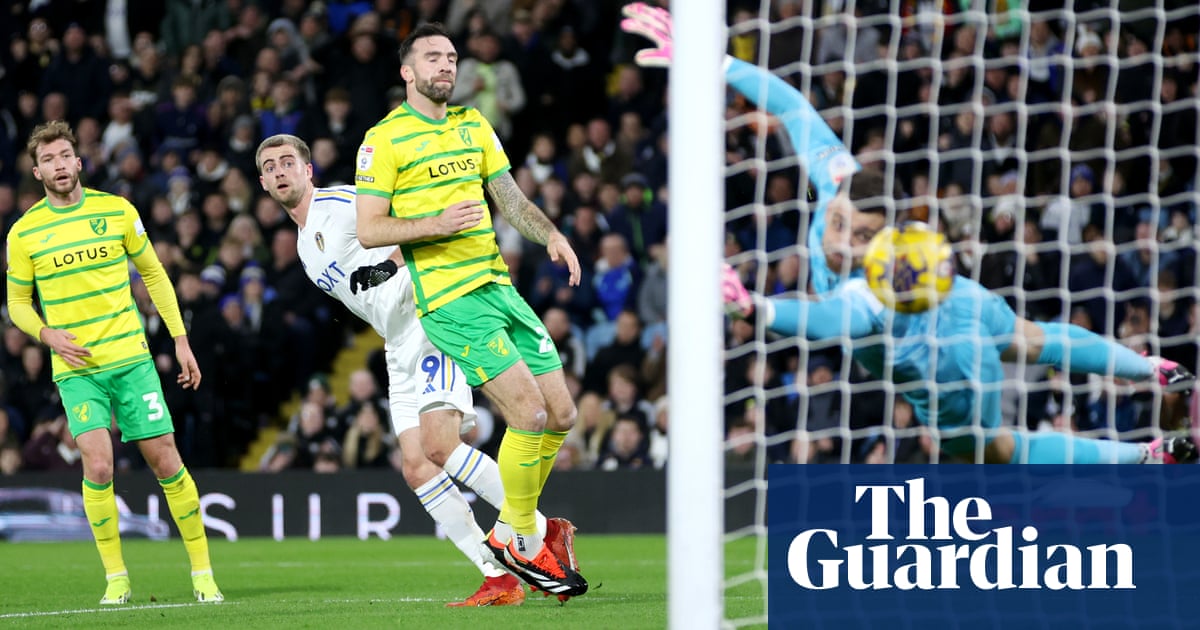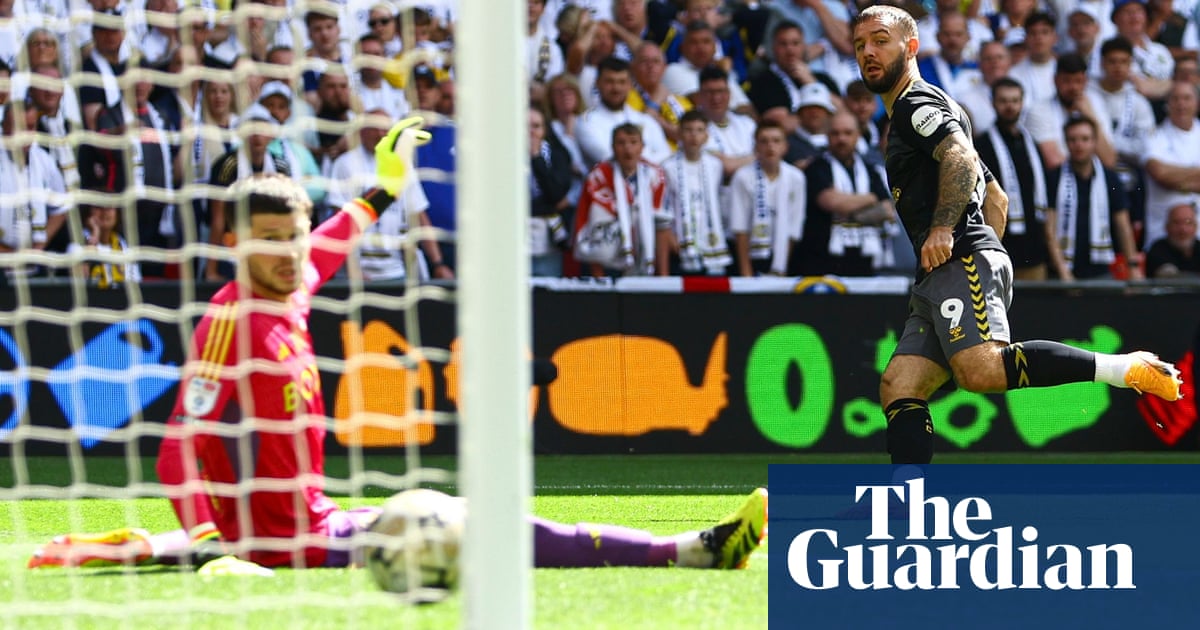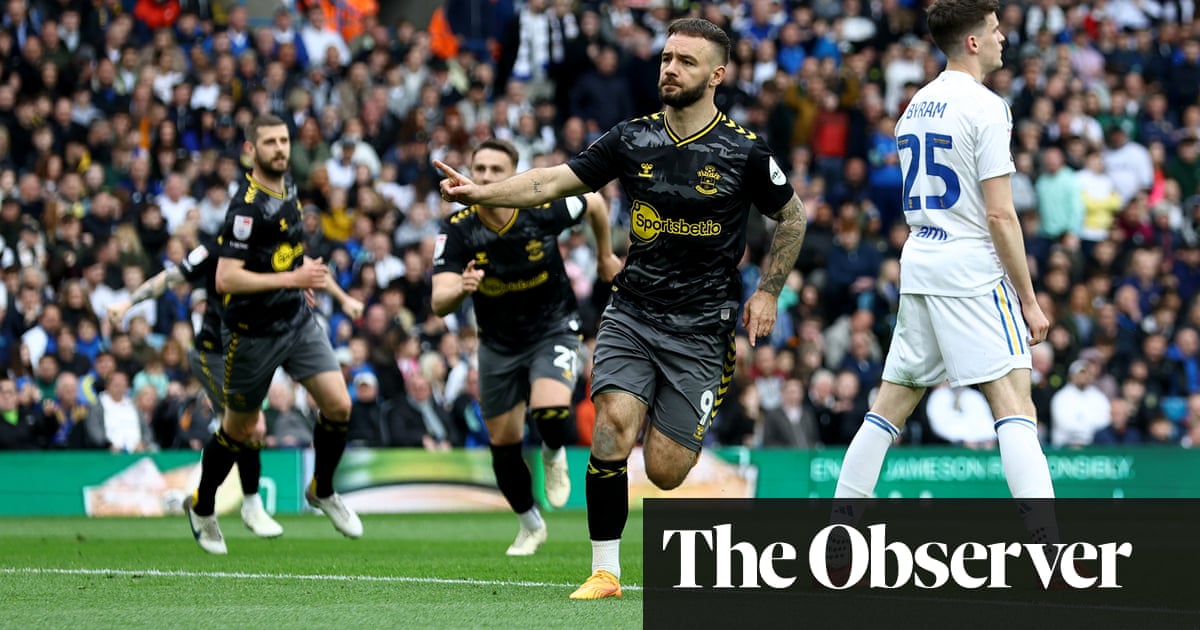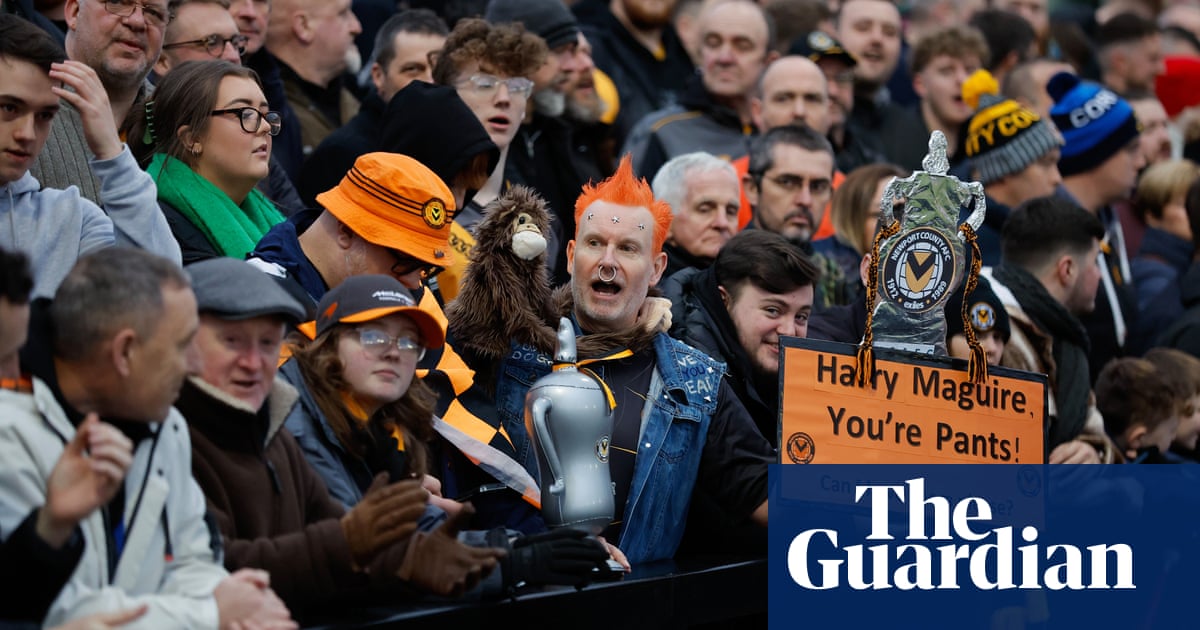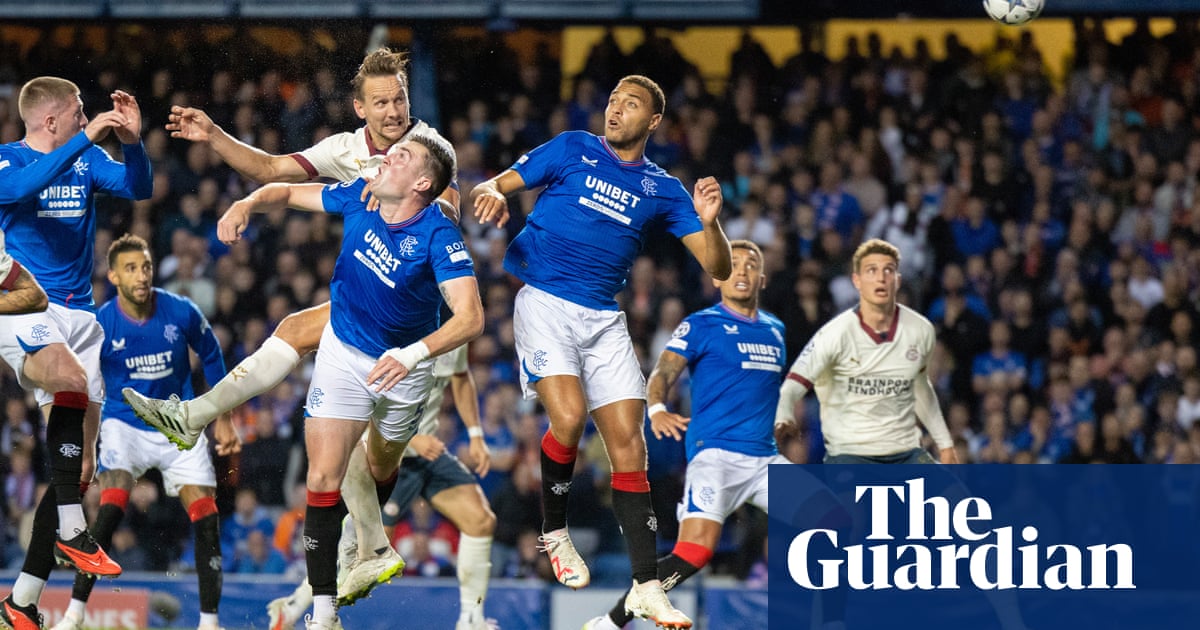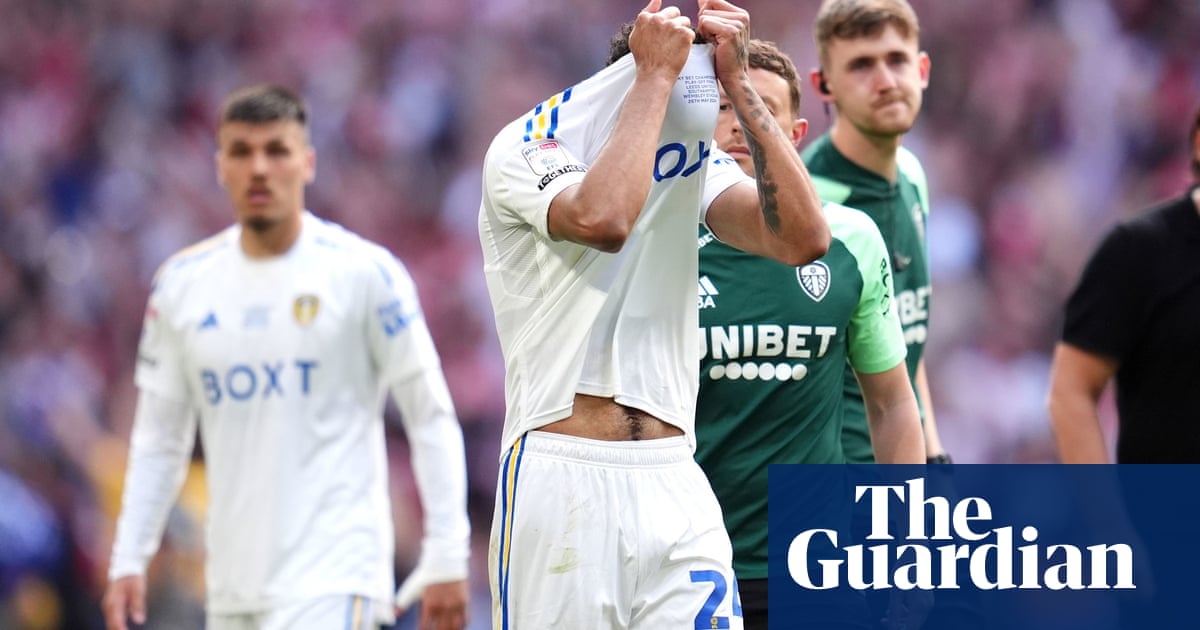
This actually does mean more. There is no other way to cut a playoff final than its division between success and failure. Tears flow either from happiness or sorrow. There can be no in-between. Any pride in defeat will be swallowed by desolation.
Such is the cruelty and beauty of the format. Wonderful to win, awful to lose, something akin to a blood sport voyeur event to the neutral. If rising to such occasions writes club legends, freezing can banish participants to infamy. Defeat added to Leeds’s horrible history at both Wembley and the playoffs.
As full-time finally arrived, Adam Armstrong, the goalscorer, led the Southampton players’ charge to their fans while Leeds players sank to the turf, the substitute Mateo Joseph thrashing his fists into the grass. The Leeds defender Joe Rodon was inconsolable despite a gang of teammates and coaches attempting to lift him from being bent double in mental anguish.
Championship football, another 46‑game season, and the dreaded prospect of more playoffs await Leeds. Where Sports Republic, Southampton’s owners, can celebrate the influx of Premier League loot coming their way after a single year’s absence, their Leeds equivalent, 49ers Enterprises, must foot the bill to go again.
Maybe the portents were too heavy for Leeds to overcome. In May 1987, St Andrews, Birmingham, after John Sheridan had put Leeds ahead in extra time of a replay, Leeds fans sang “If you’re going to Old Trafford clap your hands”. The name of Peter Shirtliff, who scored twice that night for Charlton, forever lives in White Rose lore in beginning a sequence of six playoff appearances and now six disappointments.
Wembley, too, held its fears. The last time Leeds won at the national stadium, August 1992, Eric Cantona was scoring a Charity Shield hat‑trick against Liverpool. The Leeds support base, pulling from beyond the West Yorkshire conurbation across a band through the Ridings, knew all too well what to expect.
If the ghosts of Ian Porterfield, Jim Montgomery and Doncaster in 2008’s League One playoff final still stalked Wembley Way, perhaps someone with ancestral links to the club’s sole FA Cup win could help to bury that painful past. Archie Gray, the third-generation ingenue, great‑nephew of Eddie Gray from the 1972 FA Cup final‑winning team, strode forward from his right-back role to attempt to set the tone. When he did, Yorkshire expectancy filled the air.
It couldn’t be sustained, Gray’s running battle with Ryan Fraser’s intelligent movement down the flank, with the outstanding Saints captain, Jack Stephens, forever ready to come across, would become a prime battleground, one that Leeds lost.
Just 18, better days will surely come to Gray, though whether they come in a Leeds shirt cuts to the economic realities of winning and losing the playoffs. Ahead of him, down Leeds’s right, Wilfried Gnonto could find little space in the game for his trickery and pace. Crysencio Summerville was similarly incapable of finding any magic down the other wing before the more direct Dan James and Jaidon Anthony replaced them.
Under normal circumstances, the two best teams from an exemplary Championship season that were neither Leicester nor Ipswich, are both full of attacking flair, full of players capable of shining in the division above. Wembley, though, represented a test of nerves to accompany those skills. Will Smallbone’s pass to Armstrong for Saints’ goal was the magic Russell Martin had hoped for to accompany tactics aiming to smother Leeds. Having beaten Leeds in the regular season, they again found their number.
Martin, short-sleeved, dressed casually, stayed in the perpetual motion of the very modern manager, as Daniel Farke, his former manager at Norwich, initially kept a cooler counsel, his raincoat and rueful expression giving him the appearance of the watchful manager of a struggling heavy metal band. The jacket was discarded as soon as sun and pressure began to beat down on Farke’s team. By the second half, as Leeds bludgeoned at Southampton with hammers and tongs, the two managers in black mirrored each other, pacing and imploring, offering instructions their players were unlikely to be able to hear, rubbing their beards as if seeking creature comfort.
Emotions swelled in all sorts of places. A distraught David Brooks left the field in tears on being substituted after 35 minutes. The Bournemouth loanee, a cancer survivor, and star of the semi-final destruction of West Brom, has resurrected his career on loan at Saints. He could eventually join the celebratory throng. The likes of Flynn Downes, so adept in controlling midfield alongside the tireless, creative Smallbone, Kyle Walker‑Peters, reminding he is a defender of top-division class, Stephens, and Armstrong, so cool when scoring his goal, had helped to complete Brooks’s job for him.
Two Southampton players, in the veteran goalkeeper Alex McCarthy and the substitute striker Che Adams, who added aerial prowess as Saints defended deep late on, were playing with the compounded uncertainty of being out of contract. If now is the time to take their leave, they have played full part in a swift Saints resurrection that proved beyond Leeds. Wembley and the playoffs continue to curse them. Once again, Old Trafford will have to wait.





